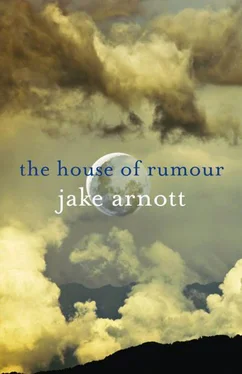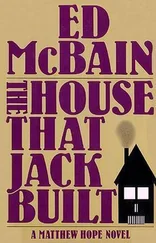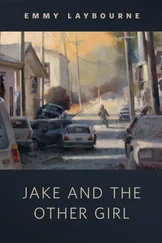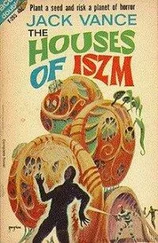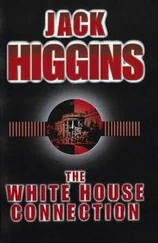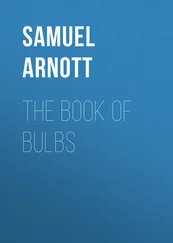‘We are going to attempt the Babalon Working,’ he told me.
I nodded absently. I had long since lost touch with what any of this really meant. I just hoped that he would find some sort of catharsis.
‘I love you,’ I said.
‘Love is the law,’ he replied with a crazed smile. He hadn’t slept properly for days. I kissed him gently on the lips and said:
‘I hope you find what you’re looking for.’
‘I want to summon an elemental.’
I know now that I should have paid more attention at this point, but I was tired too. So I kissed him again and said:
‘I’ll be waiting for you.’
And so I waited. And like a fool I imagined that my patience would be rewarded. But somebody else got there before me.
No one seemed quite sure where Candy came from. She was an artist or something. So many people drifted in and out of number 1003, it was impossible to keep track of them all. Maybe Jack really did conjure her up through the spirit world as he would later claim. All that is really certain is that there she was, standing on the front porch when he got back from the desert. And she was perfect. His ‘elemental’, the Scarlet Woman par excellence. Candy had a shock of flame-red hair, bright-blue eyes and a broad-lipped snarl of a mouth. I didn’t stand a chance. I watched as Jack slapped the dust from his jacket and walked right past me, transfixed by this vision of his delirium.
They fell in love with each other right there and then. Right in front of my eyes. I was devastated, of course, but I couldn’t help thinking that I had only myself to blame. I had meddled too much and yet not enough. I had set things up so perfectly, but for somebody else. I thought about what Astrid had said. This was how natural justice felt.
And there was yet another adjustment we all had to make. It was 1946, the year when everything at number 1003 fell apart. Hubbard conned Jack into a business proposition and promptly ran off to Florida with Betty and twenty thousand dollars of Jack’s money. There was a court case and Jack managed to get some of it back but he had to sell the lease on the house. I think he’d had enough of it by then. He left the Order and married Candy. By October, number 1003 was empty. The big old mansion was torn down to make way for modern apartments. I was ready to move on at that point but I couldn’t help feeling some nostalgia for the place, for the fleeting sense of a community of misfits. All the writers, thinkers, out-of-work actors and aspiring magicians. It had been a flawed utopia for people who believed in free living and emotional honesty. A commune for lovers of science fiction and the occult. We had been too ahead of our time. But all the post-war hope was running out. Things were about to get bleaker.
I went back to live in LA. I was lucky in some ways. I still had my job at the studio, so I threw myself into work. I had started assisting the German émigré director Max Iann. He was adapting a hard-boiled novel titled Hell is Empty . A man comes back from the war and picks up a girl in a bar. At first neither of them remembers that they were once childhood sweethearts. He has been traumatised by combat; she has become a drunk and fallen in with an evil racketeer. Despite the brief glimpses of a sentimental past, they are unable to avoid destroying each other through confusion and betrayal. It was one of those noir movies that caught a dark mood lurking beneath the official optimism of victory.
‘It’s fear,’ Max insisted. ‘That’s what’s behind Technicolor. That’s why people want happy films, because they’re terrified. Of atom bombs and communism. But most of all of themselves. It’s a neurosis of forced euphoria. But they’re not smiling, they’re gritting their teeth.’
I liked working with Max; he was a radical with bold artistic ideas who had worked in the Expressionist theatre in Berlin in the 1920s. A tall, broad-shouldered man in his forties, Max had impeccable manners, a quality rarely found in Hollywood. And I found comfort in the bleak melancholia of the script. In a strange way it meant that I didn’t feel quite so alone.
LA seemed to have become a malevolent creature. It had grown crowded since the war, a ruthless boomtown teeming with strangers desperate for the main chance, full of failed dreams and broken promises, a bright and guilty place. The harsh noonday glare cast deep shadows, the light so fierce as to conjure a blinding darkness. A city of screens and blinds, of obfuscation, its watchful eyes hooded or concealed behind dark glasses, waiting patiently for you to grow old and die. Years would pass beneath the same sad blue sky. Then at sundown, beneath the hum of neon, the relentless drones of pleasure would seek out the night to settle the score.
We started filming Hell is Empty at the beginning of 1947, mostly on a studio lot, though Max liked to use LA locations for the outside scenes. By mischance or ill fate we found ourselves shooting in Leimart Park only two blocks down from the vacant lot where the mutilated corpse of Elizabeth Short was found. This became the infamous ‘Black Dahlia’ case, an unsolved murder that haunted the city that year.
I worked on the film right the way through from the script editing, continuity on set, to the final edit. Max had this deadpan humour and a sense of the absurd, but he was undeniably serious about the work and was always generous in the praise of others when things went right. For him cinema was an art form, even when it was just a low-budget thriller.
He was hoping that his next project would be another adaptation with a bit more money spent on it. He handed me this novel titled Nightmare Alley by William Lindsey Gresham, set in the carnival world of fairgrounds and freak-shows. The central character is a conman who works a mind-reading act and tries to make a fortune out of what he calls the ‘spook-racket’.
‘Tyrone Power has the rights,’ Max told me. ‘He’s had enough of playing romantic, swashbuckling types. And you’ll be interested in this book, my dear. You see, every chapter is named after one of those Tarot cards you’re so fond of.’
Nightmare Alley was certainly an intriguing work, an American picaresque novel viewed through the lens of the darker side of spiritualism. The writing was hard-boiled and cynical but touched with the sophistication of one who must have known enough of this world to be disillusioned by it. Using the Major Arcana as a structure looks like a gimmick at first but in the end the Tarot bestows an ominous gravity on the narrative. The novel seems to suggest that human degradation is the ultimate spiritual journey. It made me think of Jack.
Near the end of the post-production for Hell is Empty , Max became withdrawn; he was brooding on something. At first I thought it was just the slight grief that comes at the end of a project. When I told him how much I had learnt from him and that I would like to work with him again, he smiled and said:
‘You best stay away from me in future, my dear.’
I laughed, thinking that he was making a joke, but he added:
‘I’ve been summoned as a witness before the House of Un-American Activities Committee.’
‘What about Nightmare Alley ?’ I asked.
‘They’ve given it to this Englishman, Edmund Goulding. Not his sort of thing at all but,’ Max shrugged, ‘I’m already persona non grata .’
I knew what this meant, of course. A Red Scare. I don’t think that I really took it seriously at the time. There had been Red Scares in Hollywood before and they had never amounted to much. But Astrid warned me that this was something different. She was working in LA, too. Her fortune-telling business was doing well.
‘People are very superstitious at the moment,’ she told me. ‘It’s always like this at the time of a witch-hunt.’
Читать дальше
